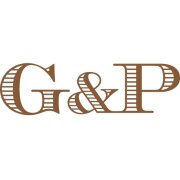Best Bad Faith Insurance Lawyers in Nuremberg
Share your needs with us, get contacted by law firms.
Free. Takes 2 min.
List of the best lawyers in Nuremberg, Germany
About Bad Faith Insurance Law in Nuremberg, Germany
Bad faith insurance refers to situations where an insurance company acts dishonestly or unfairly towards a policyholder by unreasonably refusing to pay a valid claim, delaying payment, or failing to properly investigate a claim. In Nuremberg and throughout Germany, insurance companies owe their clients a duty of good faith and fair dealing. This means insurers are legally required to act transparently, process claims efficiently, and fulfill all contractual obligations unless there are legitimate reasons not to. While the specific term "bad faith" is more commonly used in American legal context, German law provides robust consumer protections under both the German Insurance Contract Act (Versicherungsvertragsgesetz, or VVG) and the German Civil Code (Bürgerliches Gesetzbuch, or BGB). Policyholders in Nuremberg who suspect that their insurance company is acting in bad faith have various legal avenues to seek remedies.
Why You May Need a Lawyer
There are several scenarios in which someone in Nuremberg may require the help of a lawyer specializing in bad faith insurance. Common situations include:
- The insurance company is unreasonably delaying the processing or payment of a claim.
- Your claim is denied without a clear or legitimate explanation.
- The insurer fails to properly investigate your claim or ignores evidence you provide.
- You receive offers or settlement amounts that seem far too low compared to your policy benefits or damages incurred.
- The insurance provider is acting in a way that appears deceptive, misleading, or in violation of your contract or statutory rights.
- You feel overwhelmed or unsure about the legal language and requirements in the communication you are receiving from the insurance company.
Legal professionals can provide guidance, communicate effectively with the insurer, negotiate fair settlements, and, if necessary, pursue your case in court.
Local Laws Overview
Key laws relevant to bad faith insurance in Nuremberg, Germany include the German Insurance Contract Act (VVG) and the German Civil Code (BGB). The VVG regulates the relationship between insurers and policyholders, setting strict rules on transparency, information duties, claim settlement procedures, and obligations for both parties. Under German law:
- Insurers must process claims promptly and inform customers about necessary documents or steps.
- Any denial of a claim must be justified clearly and based on legal or contractual grounds.
- Policyholders have the right to challenge denied claims and request detailed justifications in writing.
- If the insurer fails to act within reasonable time limits (usually within a month after submission of all required documents), the customer may be entitled to interest payments on delayed benefits.
- In cases of intentional wrongdoing, negligence, or contractual breaches, policyholders can pursue legal action for damages, including compensation for financial losses caused by the insurer's actions.
Claims related to bad faith practices must usually be brought within statutory limitation periods set by German law, so timely action is recommended.
Frequently Asked Questions
What is considered bad faith by an insurance company in Nuremberg, Germany?
Bad faith generally involves unfair or dishonest practices such as unjustified claim denials, unreasonable payment delays, lack of transparency, or failure to fulfill contractual obligations.
Is "bad faith insurance" a recognized legal term in Germany?
While "bad faith" is not used as a technical legal term in Germany, the concept is embodied in existing laws protecting policyholders from unfair treatment and contractual breaches by insurers.
How long does an insurer have to process my claim in Germany?
German insurers must assess and decide on claims as quickly as possible, typically within one month after all required documents are submitted. Delays beyond this may entitle you to interest or other remedies.
What should I do if my claim is denied?
Request a written explanation for the denial, review your insurance policy, gather supporting documents, and consult with a legal expert to evaluate your options for appeal or litigation.
Can I sue my insurance company for bad faith in Nuremberg?
Yes, if your insurer breaches contractual obligations or acts unlawfully, you may pursue legal action for damages or the benefits owed under your contract.
What evidence is needed to prove bad faith?
Key evidence includes all correspondence with the insurer, your policy documents, proof of losses or damages, and records of any delays, denials, or miscommunications.
Are there time limits for pursuing claims against my insurer?
Yes, the statute of limitations typically ranges from 3 years for insurance contract claims, but you should act quickly as time calculations can be complex.
Does German law allow for punitive damages in bad faith insurance cases?
German law generally does not award punitive damages, but compensation for actual financial losses and interest on delayed payments can be sought.
Can I resolve my dispute without going to court?
Yes, many disputes are resolved through negotiation or mediation. The Insurance Ombudsman can help mediate complaints before considering litigation.
What role does the Insurance Ombudsman play in Germany?
The Insurance Ombudsman is an independent arbitration body that reviews complaints between consumers and insurance companies, offering a free and impartial resolution process.
Additional Resources
Here are some resources and organizations that offer guidance and support for insurance-related disputes in Nuremberg, Germany:
- Insurance Ombudsman (Versicherungsombudsmann e. V.): Independent authority assisting with disputes between policyholders and insurers.
- Consumer Advice Center Bavaria (Verbraucherzentrale Bayern): Offers counseling and information on insurance rights and complaint procedures.
- Bavarian Bar Association (Rechtsanwaltskammer Nürnberg): Directory of local lawyers specializing in insurance and consumer law.
- German Insurance Association (Gesamtverband der Deutschen Versicherungswirtschaft - GDV): Information on insurance industry practices and consumer protection standards.
- German Federal Financial Supervisory Authority (BaFin): Regulatory body overseeing insurance companies in Germany.
Next Steps
If you believe your insurance company in Nuremberg is acting in bad faith, take the following steps:
- Collect and organize all related documents, including your policy, claim submissions, correspondence, and any written responses from the insurer.
- Request a detailed written explanation for any denial or delay in your claim.
- Contact the Insurance Ombudsman or your local Consumer Advice Center for initial advice and mediation options.
- If the issue remains unresolved, consult with a local lawyer specializing in insurance law to review your case, assess your likelihood of success, and represent your interests in negotiations or court proceedings.
Acting promptly and seeking professional legal advice ensures your rights are protected and improves your chances of a fair outcome in bad faith insurance disputes.
Lawzana helps you find the best lawyers and law firms in Nuremberg through a curated and pre-screened list of qualified legal professionals. Our platform offers rankings and detailed profiles of attorneys and law firms, allowing you to compare based on practice areas, including Bad Faith Insurance, experience, and client feedback.
Each profile includes a description of the firm's areas of practice, client reviews, team members and partners, year of establishment, spoken languages, office locations, contact information, social media presence, and any published articles or resources. Most firms on our platform speak English and are experienced in both local and international legal matters.
Get a quote from top-rated law firms in Nuremberg, Germany — quickly, securely, and without unnecessary hassle.
Disclaimer:
The information provided on this page is for general informational purposes only and does not constitute legal advice. While we strive to ensure the accuracy and relevance of the content, legal information may change over time, and interpretations of the law can vary. You should always consult with a qualified legal professional for advice specific to your situation.
We disclaim all liability for actions taken or not taken based on the content of this page. If you believe any information is incorrect or outdated, please contact us, and we will review and update it where appropriate.









